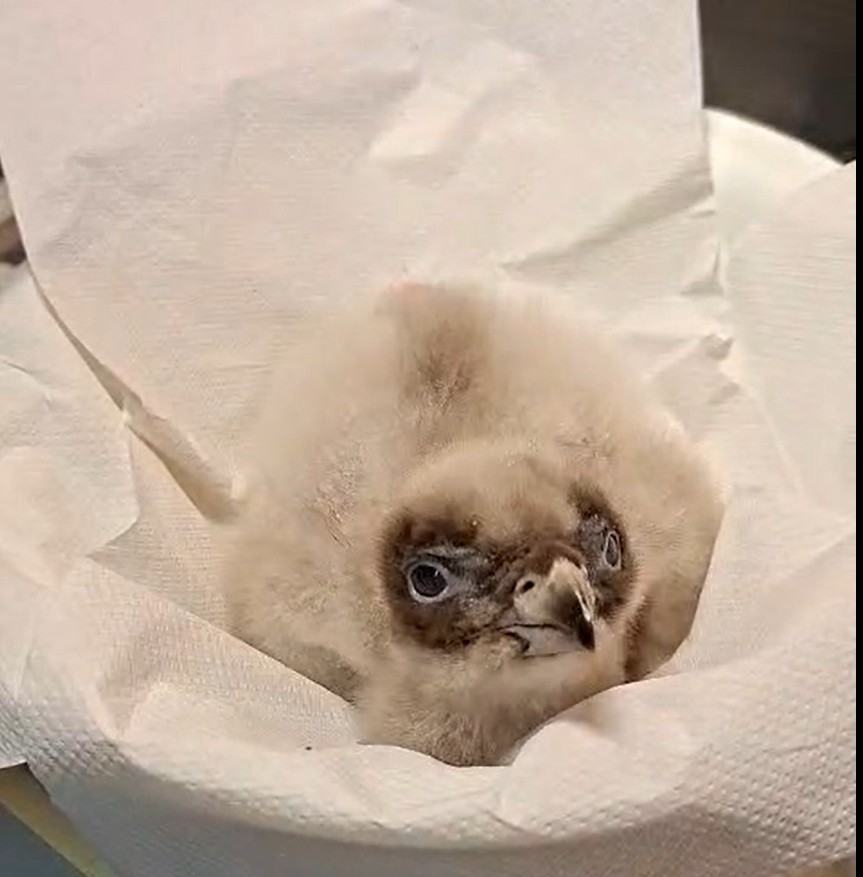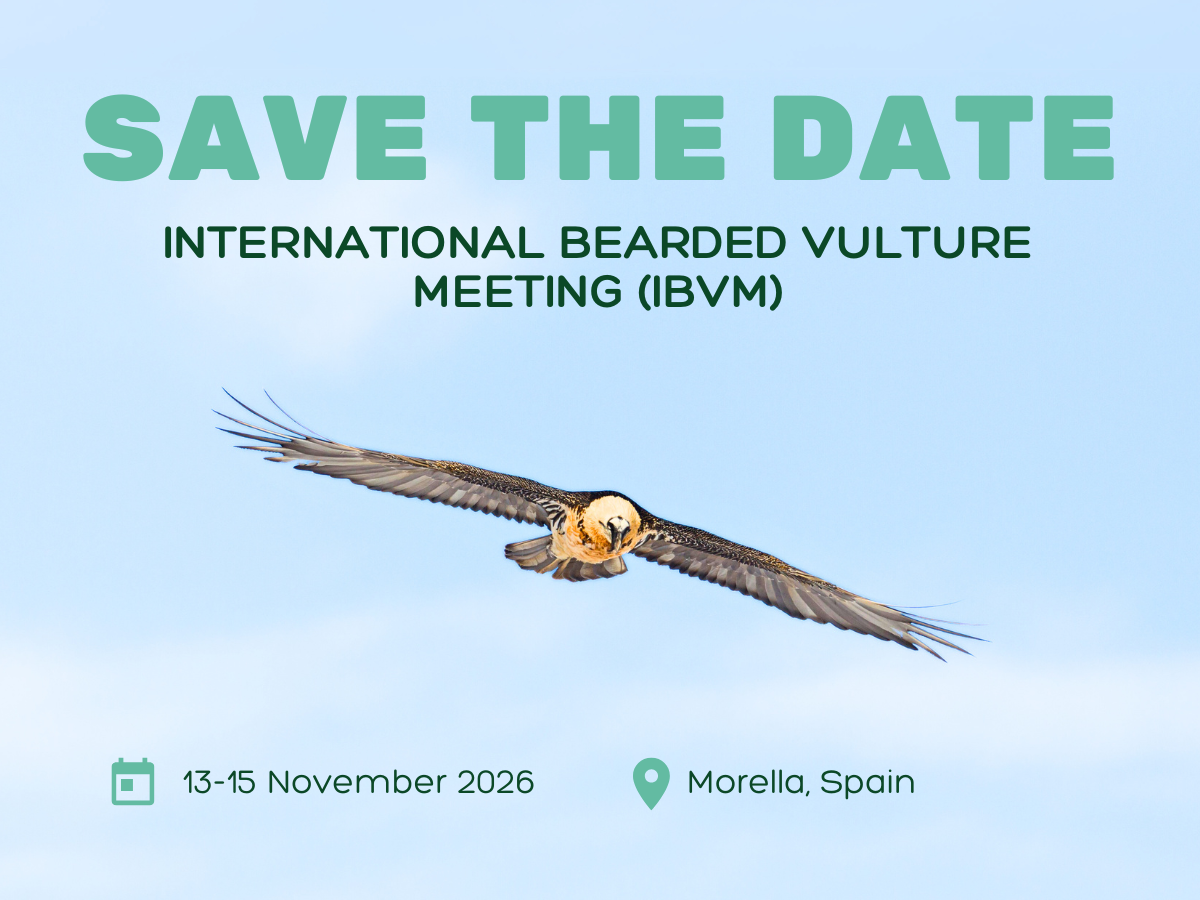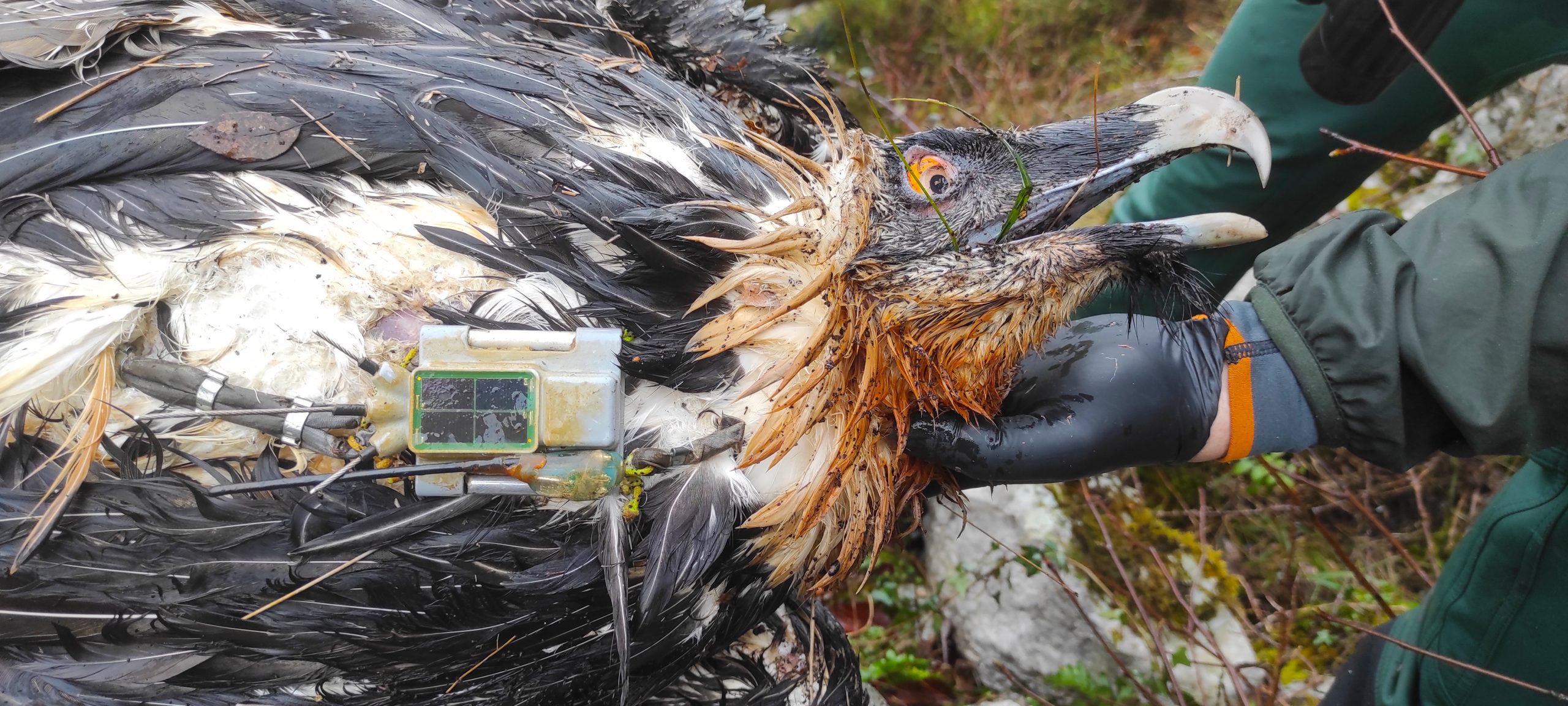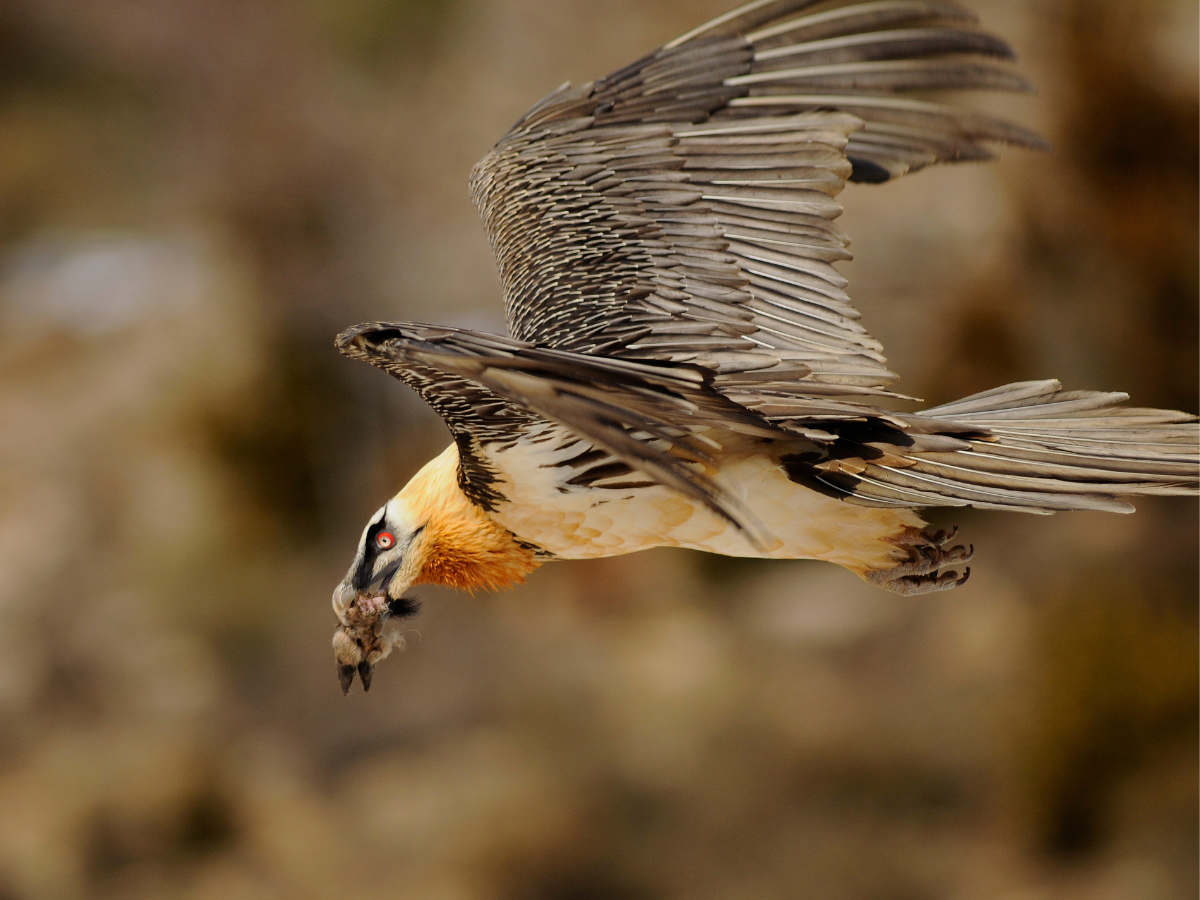For the first time in four years, a Bearded Vulture (Gypaetus barbatus) chick born in the wild in Corsica has spread its wings and taken to the skies.
Earlier this year, four Bearded Vulture chicks hatched in the wild in Corsica — a hopeful start to the season. But as challenges mounted, only one chick made it. And now, that lone survivor has taken its first flight. The moment was brief — but deeply significant. This isn’t just any chick: it’s the first ever wild-hatched Bearded Vulture that hatched to a pair of captive-origin birds in Corsica.

Meet the Parents: Luna and Muntagnolu
The chick’s story begins years ago. Its father, Muntagnolu, hatched in RFZ breeding centre in Austria and was released into the Massif du Cintu in 2016. Its mother, Luna, came from a zoo in Czechia and followed a similar path in 2017. Both were released as three-month-old chicks.
Now, after years of wandering, growing, pairing up, and learning the ropes of adult vulture life, they have finally raised a chick. It’s not their first attempt — last year, their nesting effort ended in heartbreak when the chick disappeared. But this year, they were finally successful.

A rocky start to the 2025 breeding season
Back in February, things were looking unusually optimistic. All four known territorial pairs of Bearded Vultures on Corsica laid eggs — a rare feat for a population that, not so long ago, was down to just two pairs. But as the weeks passed, reality hit hard.
One egg was left unincubated and chilled during a cold snap — the male had apparently abandoned his post. In another nest, both eggs failed without clear reason. In a third, a female accidentally broke her egg just before it was due to hatch.
These heartbreaking details only came to light thanks to monitoring cameras installed as part of the LIFE GypRescue project. While sobering, the footage provided critical insights into the challenges facing this fragile population — from incubation issues to accidental damage and predation by Great Ravens in earlier years.
A population on the rise — But still on the brink
Corsica’s Bearded Vultures are no ordinary birds. They represent a genetically unique lineage, a remnant of a broader Mediterranean population that once ranged across southern Europe.
And though their numbers are still dangerously low, they’re moving in the right direction. Thanks to years of conservation efforts, the number of territorial pairs has raised from just two to around four to six today. It’s a fragile foothold — but a real one.
This year’s lone chick — hatched, nurtured, and now fledged in the wild — is proof that the population can recover.
A team effort to turn the tide
From reintroducing captive-bred birds and monitoring nests to providing food support and tackling threats, the LIFE GypRescue team has built a strong foundation for a self-sustaining Bearded Vulture population in Corsica.
And now, there’s even more reason for optimism: the European Union has approved a 15-month extension of the project, which will now continue through September 2026. This extra time gives the team a valuable opportunity to deepen and expand their impact. Key priorities moving forward include:
- Expanding protected Natura 2000 sites
- Releasing two more captive-bred vultures in 2026
- Collaborating with hunters to pilot unleaded ammunition
- Partnering with EDF to reduce the risk of electrocution and collisions
- Developing new education and outreach tools
This extension isn’t just a continuation — it’s a vote of confidence in the work already done, and a chance to secure the future of Corsica’s unique Bearded Vulture population.
The LIFE GypRescue project

Led by Parc naturel régional de Corse, in collaboration with Ligue pour la Protection des Oiseaux, Direction des systèmes énergétiques insulaires, Fédération des Chasseurs de la Corse du Sud and us at the Vulture Conservation Foundation, the LIFE GYPRESCUE project (LIFE20 NAT/FR/001553) came to life in 2021 to prevent the extinction of the Bearded Vulture in Corsica. The project team strives to increase the population through restocking actions, improve the natural reproduction and boost the island’s nesting capacity for the species, while preventing human-related disturbance and mitigating threats to reduce mortality.




